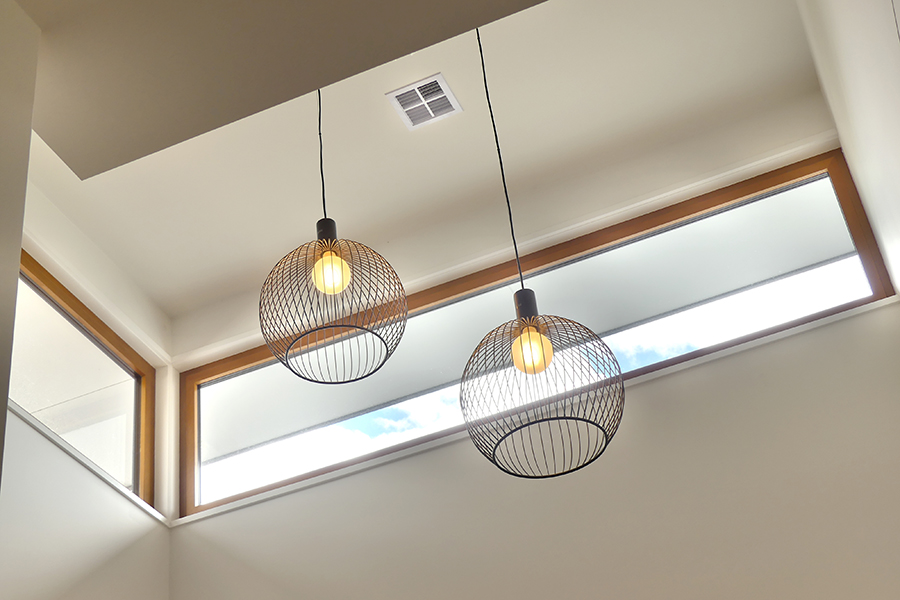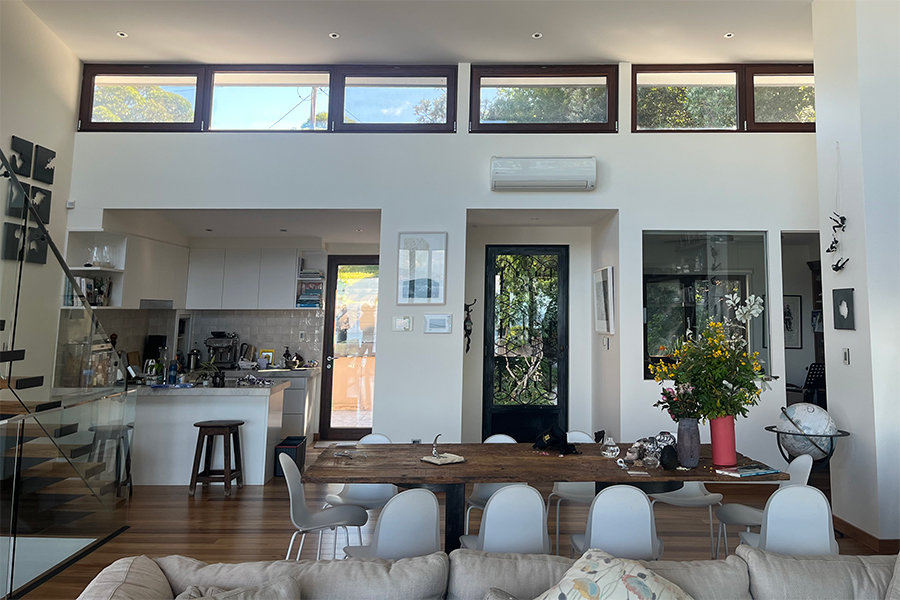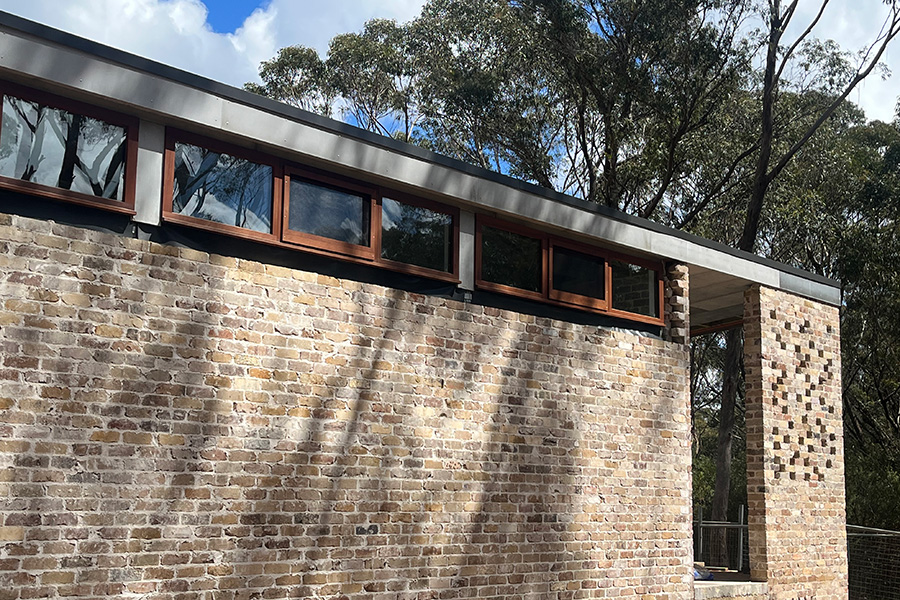Click here to view our latest blog
Clerestory Windows: Unique Benefits

What are clerestory windows and why can we see their revival in modern homes?
Clerestory windows are often narrow windows placed towards the top of a wall, close to the ceiling or roofline. While already used by the Egyptians and over the centuries in many churches, clerestory windows are now frequently seen in modern homes. Clerestory windows can also be shaped to follow a roof line, and in such designs the windows create the perception of a floating roof, and a sense of connection to the sky.
Privacy
Part of the reason for their revival are strict overlooking laws. Building regulations do not permit a direct line of site into a neighbour’s habitable rooms. Clerestory windows placed
above the eye level of an estimated 1.7m let in light and connect to nature but avoid overlooking neighbours.

Opening and Automation
Being situated up high it can be tricky to open or close clerestory windows. Stepladders or crank poles are an option, but motorisation is often used these days. This
automation with a chain drive is available for hard-to-reach areas and allows the windows to be operated with the
push of a button. The chain drive is installed and concealed in the window frame and no unsightly mechanics can be seen. Often some of the clerestory windows are fixed while only some
strategically placed ones are openable.

Passive Design and Efficiency
Clerestory windows can be an effective passive design strategy for buildings. Passive design refers to design strategies that use natural resources, such as sunlight and air, to reduce a
building's carbon footprint and its reliance on mechanical systems, and clerestory windows can help in several ways.

Ventilation
Clerestory windows provide ventilation and are effective in passive energy design. As heat rises it is beneficial to use clerestory windows near the ceiling to vent hot air. Ceiling fans can be used to accelerate air flow and help expel hot air from a room. It is also possible to create a kind of chimney effect or cross ventilation by bringing in cool air from a low window on the opposite side of the room.
Daylighting
Clerestory windows are positioned high on the wall, allowing natural light to penetrate deep into a building's interior. This can help reduce the need for artificial lighting during the day, saving energy and reducing electricity costs.
Thermal comfort
During cold winter months, the sun is placed lower in the sky, at just the right angle (in relation to the window) to warm up the room with natural sunlight. During hot summer months on the other hand, the sun is high in the sky, which in combination with appropriate eaves or external shading can prevent the hot sun rays to enter and heat up the house.
Ready to talk windows: Contact us
Subscribe to our bi-monthly Newsletter